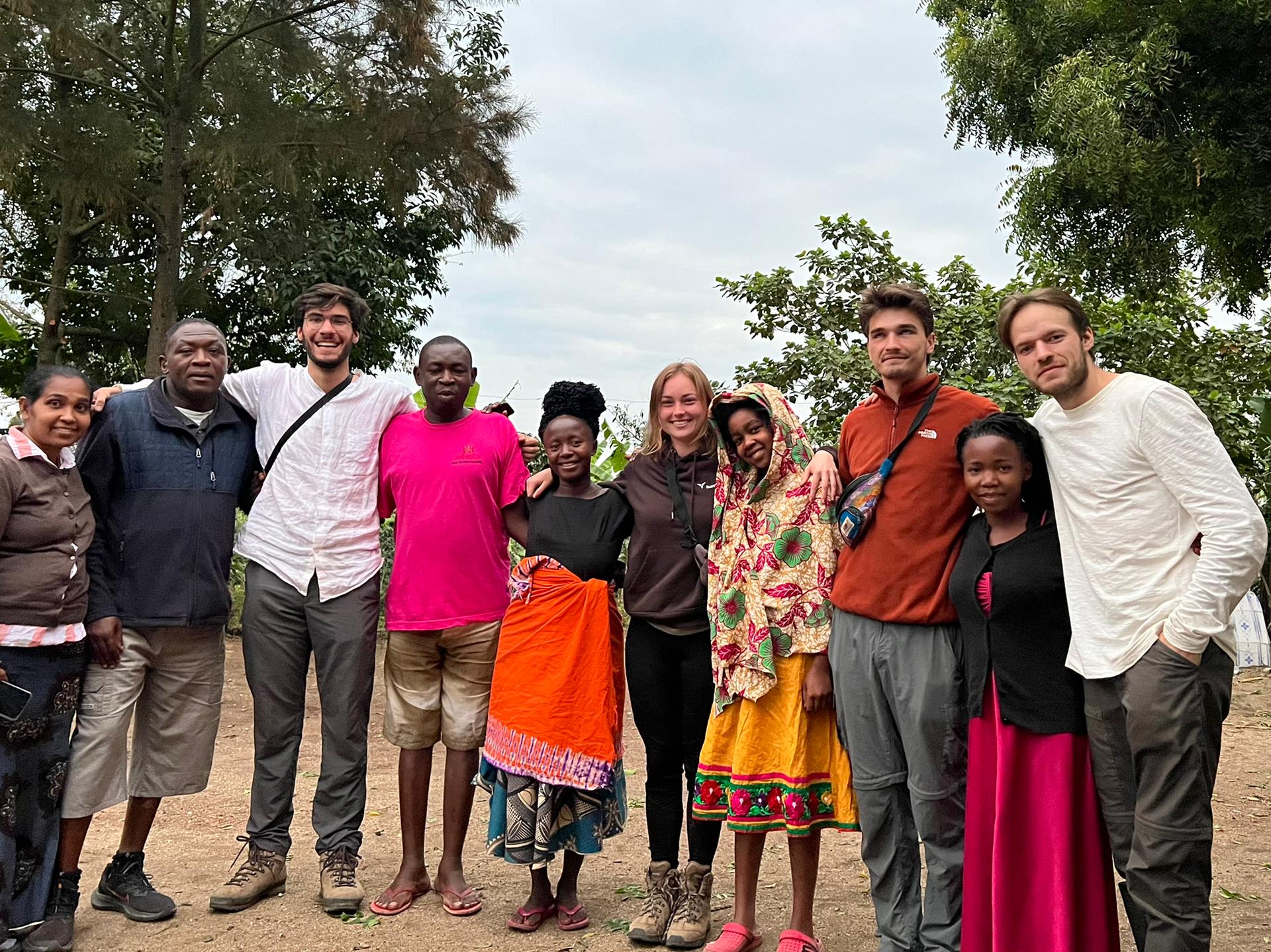As we are preparing for our flight back to Belgium, we would like to end things on a more personal note and take time to reflect on the impressions and experiences we had in the past 2 months.
Our Ugandan family
What struck us the most was how Father Tom and Reena accepted us in their family. From the start on we felt at home and we were treated as four of their kids. We also got to know their real children: Renosh, Toreen and Mario (13, 10 and 7 years old). After some movie nights and many intense jungle speed brawls, they started to feel as our siblings. The hospitality of this family was not only reserved for us, but also for children in need for a place to stay: Father Tom and Reena provide shelter and food to some orphans and to children that live too far from school.


First impressions
When we look back on our stay, we realize we didn’t do so many trips or excursions. Instead, we spent a lot of time with our Ugandan family and the community members. On our arrival we learned that the people in Kisebere are not at all used to Muzungus, as this is not a touristic region. According to Toreen, the pupils first talked about us as the weird looking humans with a lot of money and a lot of (yellow?) hair. Everyone acted very shy and humble around us at first, making it difficult to interact with them. However, the people we worked with quickly realized that we were just normal people. As we spent a lot of time together, we got to know each other very well and we became friends.
Local culture
During the many interesting and amusing conversations, we got to grasp some aspects of the local culture. We noticed some cultural differences, like the view on homosexuality, polygamy, and the impact of religion in the community. We realised that the role of women in the Ugandan society is more nuanced than we first thought. We noticed almost all women have a job, even in leading positions (such as the CEO of our supplier and the owner of our hotel). On the other hand we encountered rather strict norms on the responsibilities of men and women. When a guy wants to propose to a girl, he is supposed to approach her first while she is supposed to refuse him a few times before she accepts. Then the man should give 12 goats to the father of the girl as an official request for approval of the marriage. Once married, women are expected to cook, wash and take care of the kids, while men are expected to be tough, protect their families and drive the bodaboda’s or cars. Therefore the locals were quite surprised to see Eveline drive and do technical work. We think (hope) that we’ve planted a seed, as some of the girls at school told Eveline they wanted to become an engineer as well.
Another remarkable difference is the busy community life. Where Belgian people are generally minding their own business, the villagers of Kisebere seem to all know each other: they meet in church every Sunday, they are connected through family bonds, or they just chill all day with the neighbours in front of the house. So of course the whole community was aware of our presence and the work we were doing at the school. Everywhere we came, people were staring at us, greeting us (Muzunguuu!!) and thanking us for the work. Jimmy told us that a lot of unexpected guests attended his wedding, just because they heard there were going to be dancing Muzungus. Although being the centre of attention was fun for a while, we look forward again to our quite life in Belgium, minding our own business.
Despite these cultural differences, we also have a lot in common. The teasing between Renosh and Toreen, the gossip of the girls at school and the boys-vs-girls netball games reminded us of our own time in primary school. Also very familiar was the way in which Reena cared for us as a mother: making sure we ate enough, being worried if we were feeling unwell and always listening to our stories (with a hot cup of tea). With our local friends we laughed at the same kind of jokes, but we also noticed a similar way of mourning at the funerals.
The future of Kisebere: education
A lot of kids from poor families tend to drop out of school because they can no longer pay the fees. The school tries to find ways to support those in need, but it is difficult due to limited resources. However, Father Tom is convinced that our presence has shown the pupils the consequences of good education and a diploma. He thinks that our work has a large effect on the image of the school, which will stimulate the villagers to send their kids to this school in the future. So we hope our project will have a lasting impact in Kisebere, not only in the physical form of light and electricity, but also in the minds of the pupils and their families.




Goodbye!
In any case, the project has certainly had a major impact on the 4 of us. We had an amazing experience, with a lot of challenges but also a lot of great moments. We want to thank the whole community of Kisebere, for the warm welcome, the helping hands, the love and the friendship. A special thanks goes to Father Tom, Reena, Renosh, Toreen and Mario, for making us feel at home and being our family for 2 monts.
Our family:











